Best Wood Choices for Butcher Block Countertops
Butcher block countertops bring warmth, character, and functionality to kitchens, making them a beloved choice among homeowners and designers alike. However, selecting the right wood for butcher block countertops is crucial to ensure both aesthetics and durability. With a plethora of wood species available, each boasting unique characteristics and qualities, it’s essential to understand the best options for your specific needs. Below are some of the top wood choices for butcher block countertops and what sets them apart.
Maple: Timeless Elegance
Maple is a classic choice for butcher block countertops, prized for its timeless elegance and exceptional durability. Known for its fine grain and pale, creamy color, maple lends a bright and airy feel to any kitchen space. Maple butcher block countertops are highly versatile, complementing a wide range of design styles from traditional to contemporary. Moreover, maple’s hardness and resilience make it well-suited for withstanding the rigors of daily use, including chopping, slicing, and food preparation.
One of the key advantages of maple butcher block countertops is their ability to resist scratches, dents, and dings, thanks to the wood’s dense and tightly packed grain structure. Additionally, maple is relatively low maintenance, requiring regular oiling or sealing to protect the wood and enhance its natural beauty. With proper care, maple butcher block countertops can last for decades, aging gracefully and developing a rich patina over time.

Walnut: Luxurious and Rich
For homeowners seeking a more luxurious and rich aesthetic, walnut butcher block countertops are an excellent choice. Walnut is prized for its deep, chocolate-brown color and striking grain patterns, which add warmth and character to any kitchen. The natural hues and variations in walnut wood create a visually stunning surface that becomes the focal point of the room. From modern kitchens to rustic farmhouse-inspired spaces, walnut butcher block countertops exude sophistication and charm.
In addition to its stunning appearance, walnut is renowned for its durability and strength, making it ideal for high-traffic areas like kitchen countertops. While slightly softer than maple, walnut is still highly resistant to scratches and wear, requiring minimal maintenance to preserve its beauty. Regular oiling or sealing can help protect the wood and maintain its luster over time, ensuring that walnut butcher block countertops remain a timeless and elegant addition to any kitchen.
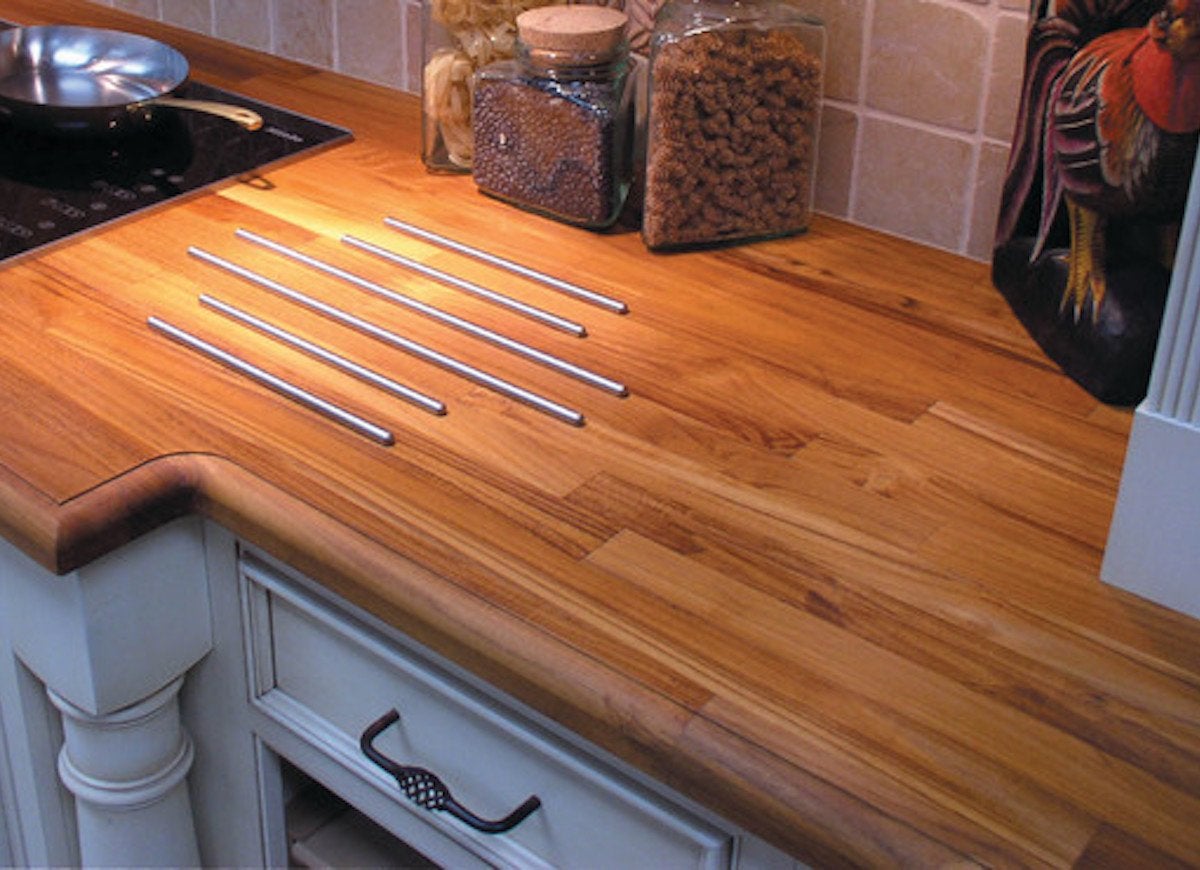
Cherry: Warmth and Character
Cherry wood offers a warm and inviting option for butcher block countertops, with its rich, reddish-brown tones and distinctive grain patterns. Cherry ages beautifully, deepening in color over time to develop a rich patina that adds warmth and character to the kitchen. The natural variations in cherry wood create a unique and visually appealing surface that enhances the overall ambiance of the space.
In addition to its aesthetic appeal, cherry wood is prized for its durability and workability, making it a popular choice for butcher block countertops. While slightly softer than maple or walnut, cherry is still robust enough to withstand daily use and maintain its integrity over time. Regular oiling or sealing helps protect the wood and enhance its natural beauty, ensuring that cherry butcher block countertops remain a timeless and enduring feature in any kitchen.
Oak: Rustic Charm and Strength
Oak butcher block countertops exude rustic charm and strength, making them a popular choice for farmhouse-style kitchens and traditional interiors. Oak is celebrated for its prominent grain patterns, warm undertones, and rugged appearance, which add a sense of authenticity and character to the kitchen space. Whether you prefer the light, honey tones of white oak or the deeper, reddish hues of red oak, oak butcher block countertops offer versatility and visual interest.
One of the key benefits of oak butcher block countertops is their exceptional durability and resilience. Oak is known for its hardness and strength, making it highly resistant to scratches, dents, and wear. With proper care and maintenance, oak butcher block countertops can withstand the demands of daily use while retaining their natural beauty and charm. Regular oiling or sealing helps protect the wood and enhance its longevity, ensuring that oak butcher block countertops remain a cherished feature in the kitchen for years to come.

Common Mistakes to Avoid:
Choosing Soft Woods: Avoid selecting soft woods like pine or cedar for butcher block countertops, as they are more prone to scratches, dents, and damage from moisture and heat.
Neglecting Maintenance: Proper maintenance is essential to preserve the beauty and integrity of butcher block countertops. Regular oiling or sealing helps protect the wood and prevent drying out, cracking, or warping over time.
Skipping Proper Installation: Improper installation can lead to issues such as uneven surfaces, gaps, or structural problems. Ensure that butcher block countertops are installed correctly by experienced professionals to achieve a seamless and secure result.
Ignoring Wood Grain Orientation: Pay attention to the orientation of the wood grain when installing butcher block countertops to ensure a cohesive and visually appealing surface. Properly aligned grain patterns create a uniform and harmonious look.
Using Harsh Cleaners: Avoid using harsh chemicals or abrasive cleaners on butcher block countertops, as they can damage the wood and strip away protective finishes. Stick to mild soap and water for regular cleaning to maintain the beauty and longevity of the wood.
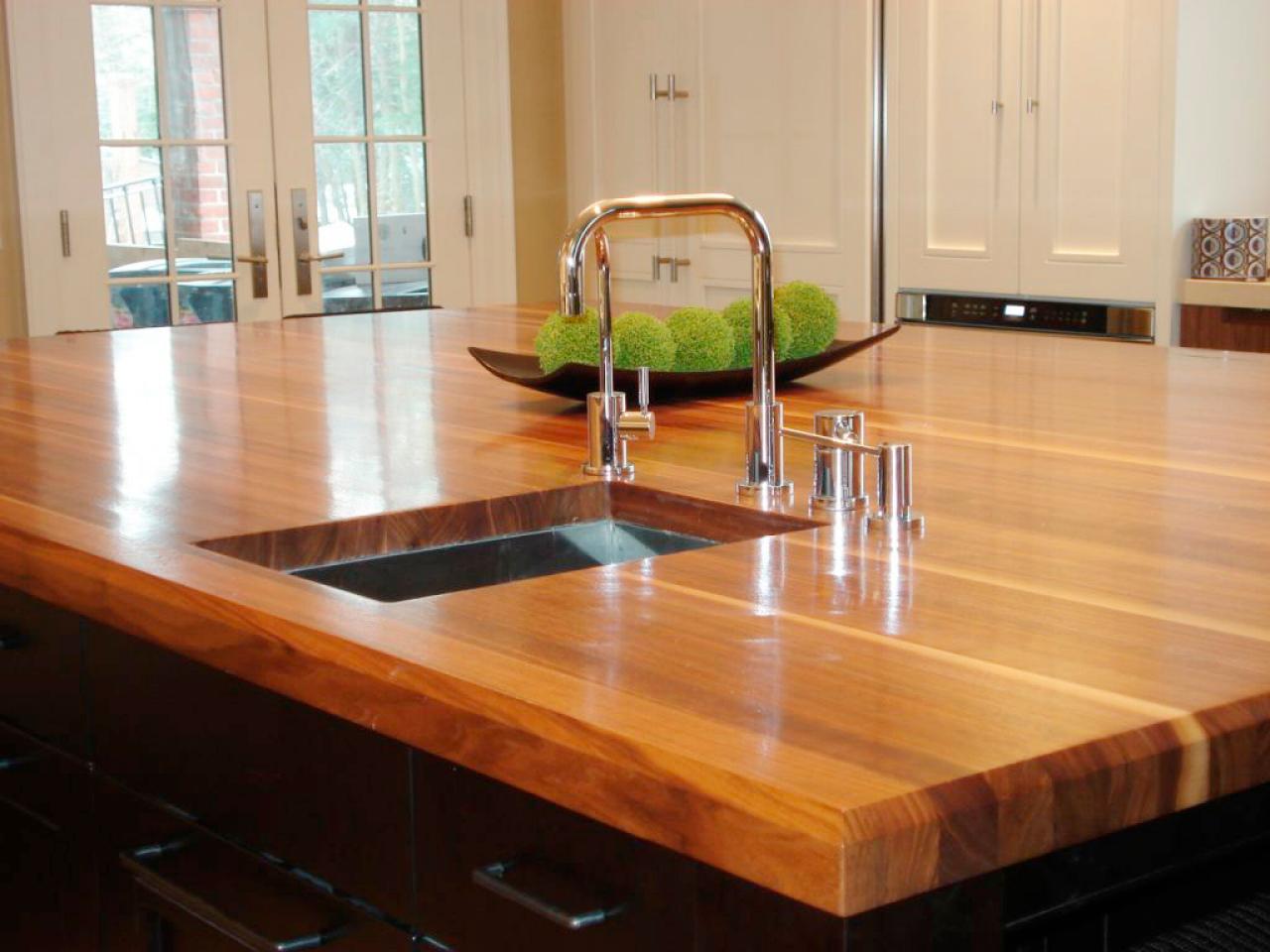
Can butcher block countertops be used as cutting boards?
Yes, butcher block countertops are designed to withstand cutting, chopping, and food preparation. However, it’s advisable to use cutting boards or protective mats to prevent scratches and preserve the integrity of the wood surface.
How often do butcher block countertops need to be oiled or sealed?
The frequency of oiling or sealing butcher block countertops depends on factors such as wood species, usage, and exposure to moisture. As a general rule, it’s recommended to oil or seal the countertops every 6 to 12 months or as needed to maintain their beauty and protect the wood.
Are there any wood species to avoid for butcher block countertops?
While most hardwoods are suitable for butcher block countertops, it’s best to avoid soft woods like pine, cedar, or fir, as they are more prone to damage and wear. Opt for hardwoods such as maple, walnut, cherry, or oak for durability and longevity.
Can butcher block countertops be refinished if they become damaged or worn over time?
Yes, butcher block countertops can typically be refinished to repair surface damage, scratches, or stains. Sanding the surface and reapplying oil or sealant can restore the wood’s appearance and protect it from further damage.
Do butcher block countertops require special care in humid environments?
In humid environments, it’s especially important to maintain proper ventilation and airflow around butcher block countertops to prevent moisture buildup and minimize the risk of warping or cracking. Regular oiling or sealing helps protect the wood and maintain its stability in varying humidity levels.
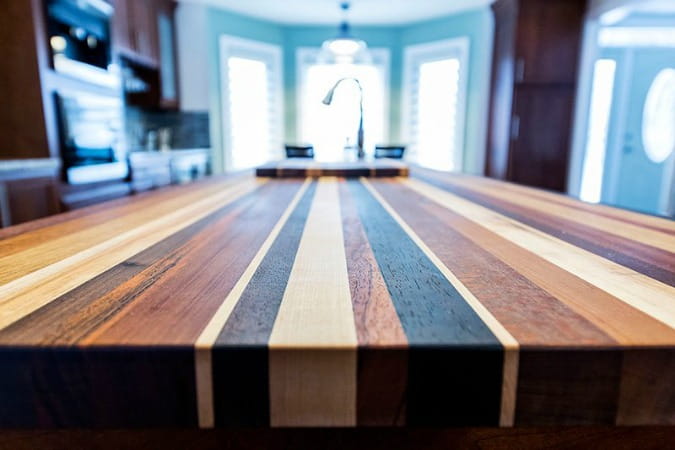
My Take on Butcher Block Countertops”Woodnu0027t” You Like to Know

Butcher Block Countertops

Size and Wood Species Options for DIY Butcher Block Projects
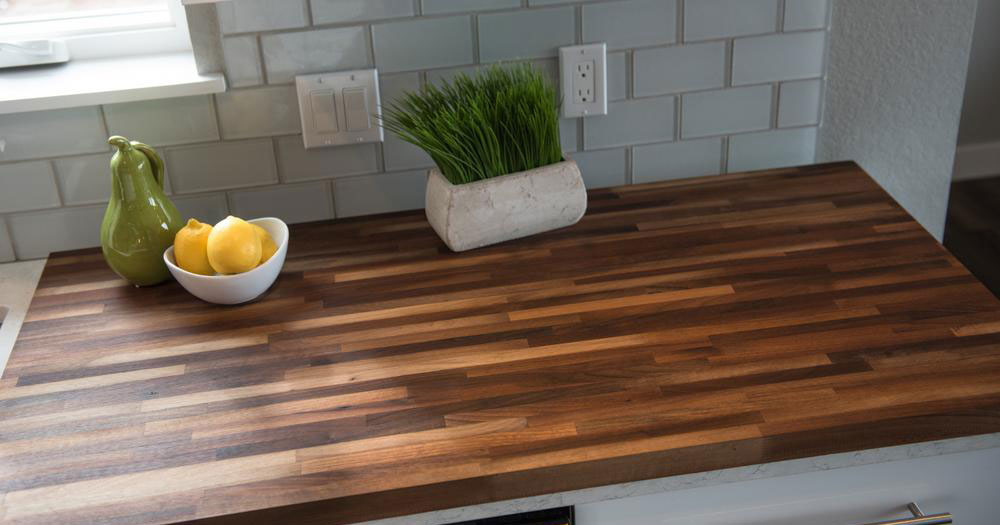
How to Stain Butcher Block
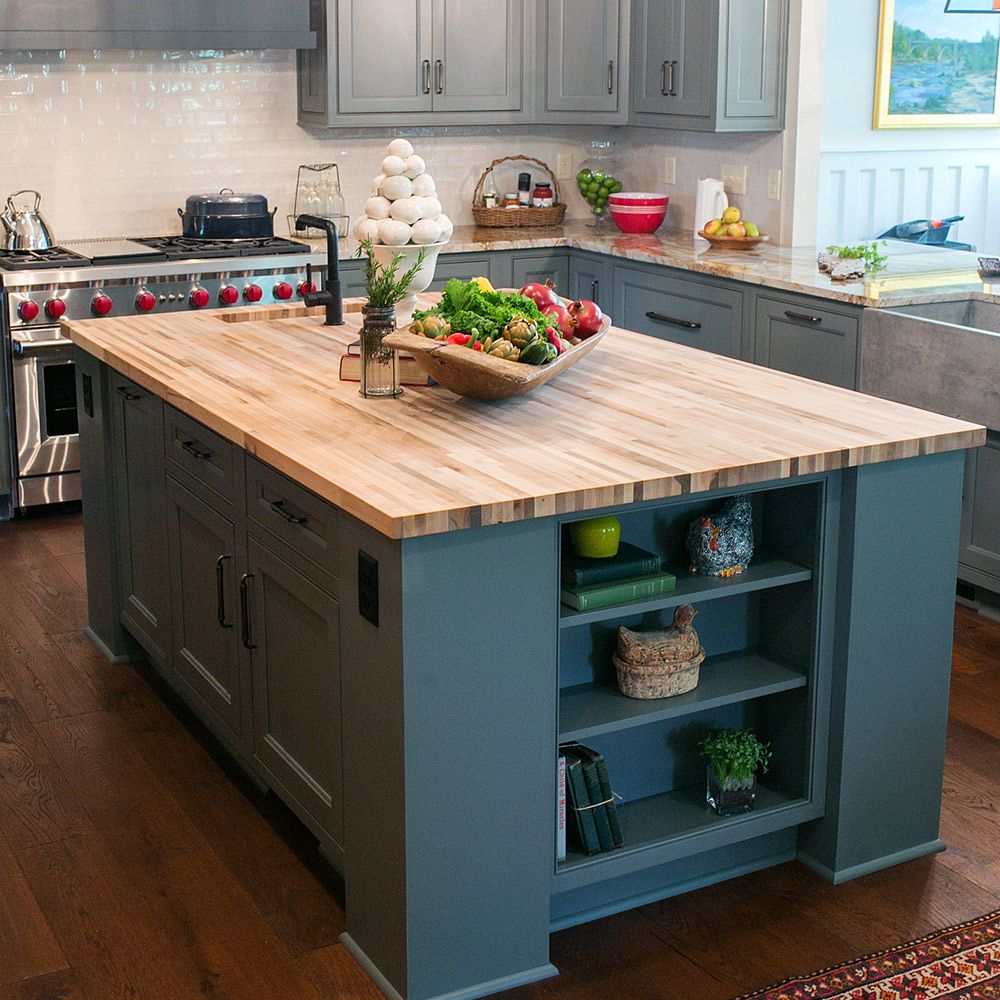
The Baltic Butcher Block 48-in x 24.96-in x 1.75-in Natural Straight Butcher Block Birch Countertop

Related articles:
- Mahogany Butcher Block Countertops
- Butcher Block Countertop For Kitchen Island
- Can You Paint Butcher Block Countertops
- Butcher Block Countertops With White Cabinets
- Pine Butcher Block Countertops
- Butcher Block Countertops Walnut
- Maple Butcher Block Countertops
- Care Of Butcher Block Countertop
- Butcher Block Countertops Maintenance
- Antique Butcher Block Countertops